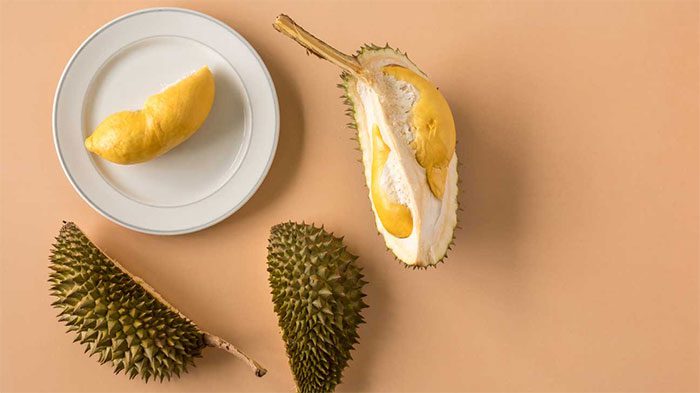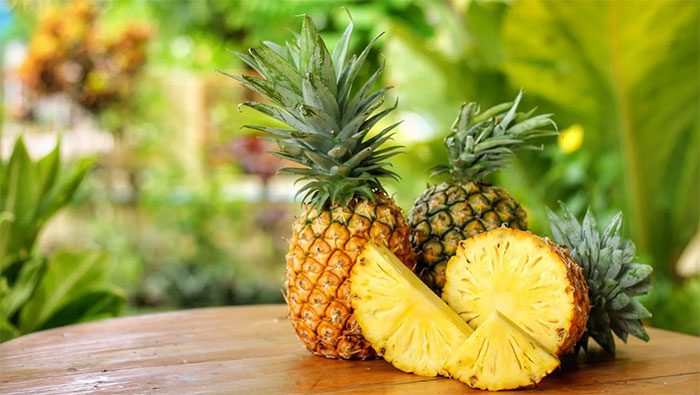You should avoid eating these fruits before bedtime as they may affect your health and sleep quality.
Everyone knows that fruits are healthy, but eating them at the wrong time can disrupt your sleep. Fruits that are high in sugar and fat should be limited before bedtime. Consuming fruits right before sleeping can release a lot of sugar, causing a sudden spike in energy. Moreover, the habit of eating fruits with other foods like ice cream can lead to rapid weight gain.
Especially if you are experiencing digestive issues such as irritable bowel syndrome, stomach pain, or acid reflux, consider consulting with a doctor or nutritionist to find out which fruits may be suitable for you before bedtime.
Fruits to Avoid Before Sleep
Sugar Apple
The sugar apple is rich in vitamin C, fiber, carbohydrates, potassium, and various vitamins and minerals beneficial for health. The best part is that sugar apples contain no saturated fat or cholesterol, making them great for dieters or those looking to lose weight. However, they are very sweet and high in sugar, which is not advisable for diabetics.
Rambutan
The rambutan is considered a highly nutritious fruit, making it suitable for desserts or snacks during the day. However, you should avoid this delicious fruit in the evening as it can lead to restless sleep. Additionally, the xanthone in rambutan can be active and potentially cause toxicity. If you want to enjoy it, only eat this fruit during the day.
Durian

Avoid eating durian before bedtime.
Durian is high in sugar, so individuals with high blood pressure, low blood pressure, cardiovascular disorders, or stomach ulcers should limit their consumption in the evening. Eating this fruit at night can easily lead to arteriosclerosis.
Mango
The high sugar content in mangoes can cause blood sugar-related diseases such as diabetes and hyperlipidemia. Avoid eating this fruit in the evening to prevent high sugar accumulation in the body.
Avocado
Avocados are rich in plant fats and low in sugar, beneficial for the stomach and protecting the physiological functions of the cardiovascular system and liver, while reducing cholesterol and blood lipids. However, due to their high plant fat content, avocados are not suitable for evening consumption. Eating them could lead to an accumulation of pure plant fats, causing complications such as high blood pressure and weight gain.
Dragon Fruit
Similar to mango, the high sugar content in dragon fruit can lead to gastrointestinal disorders, diarrhea, and blood sugar-related diseases when consumed in the evening.
Pineapple
Pineapples contain high levels of sugar and acid, which are not good for those with kidney issues or blood sugar concerns. Additionally, the acid content in pineapples is relatively high, which can cause stomach pain if eaten late at night.

The acid in pineapples is relatively high, which can cause stomach pain if consumed late at night.
Raisins
Raisins contain very high sugar levels; ten small raisins provide the same calories as a large bowl of rice. Eating too many raisins in the evening can increase calorie intake and blood sugar, leading to a high risk of diabetes.
Some Foods You Can Eat Before Sleep
Bananas
Fruits are always part of any balanced meal, and bananas are one of them. Bananas contain tryptophan, which helps the body regulate sleep. Additionally, bananas are rich in magnesium and vitamin B6. These components work together in bananas to help reduce stress and lower the risk of insomnia.
Dairy Products
Dairy products are a source of calcium and nutrients and are also rich in tryptophan, an amino acid necessary for serotonin production, which helps the body fall asleep. The probiotics found in yogurt also promote good digestion. However, it’s better to prioritize light products such as fresh cheese and unsweetened yogurt.
Herbal Tea
Some herbs, such as valerian or lemon balm, are known for their relaxing properties that help you fall asleep more easily. Additionally, establishing a routine, such as drinking herbal tea in the evening, helps the brain recognize that it’s time to rest.
Legumes
Legumes are rich in fiber, protein, and minerals. Beans, lentils, and other legumes have very low glycemic indexes. Therefore, they meet the body’s energy needs for a full night’s sleep while promoting tryptophan production.
Nuts
Like legumes, nuts contain tryptophan that contributes to helping the body rest. These foods are also part of a balanced diet, providing protein, vitamins, minerals, and healthy fats.



















































